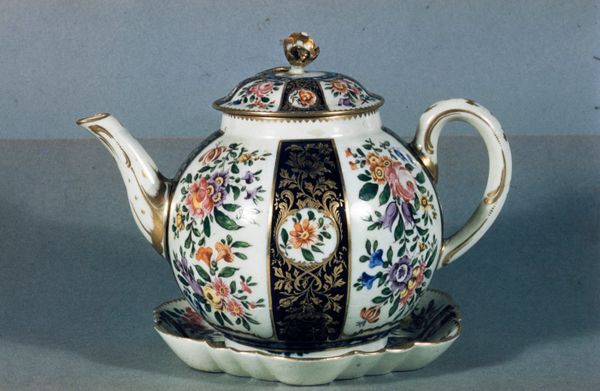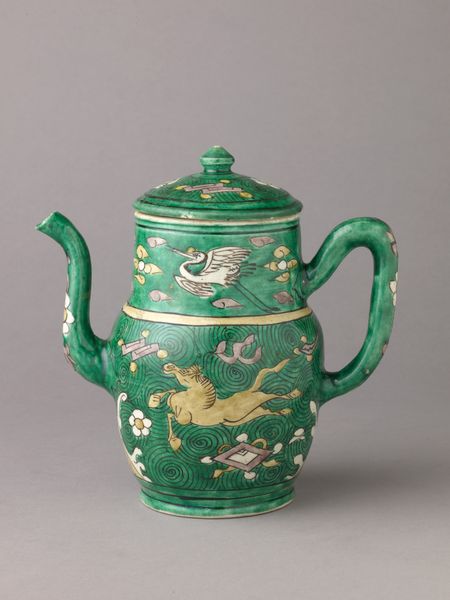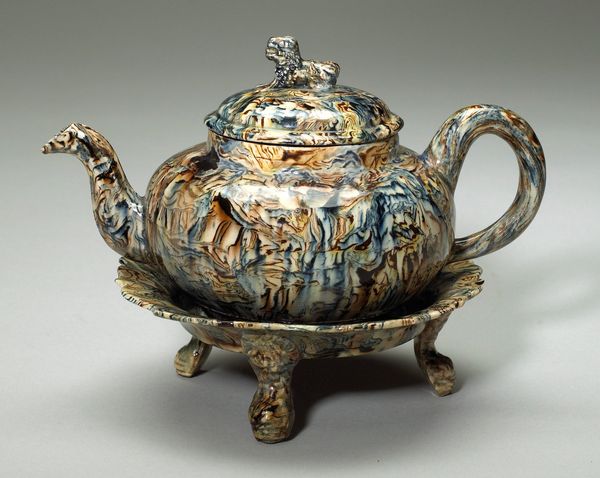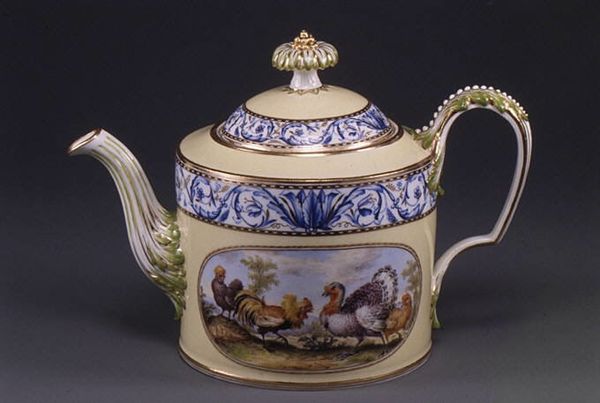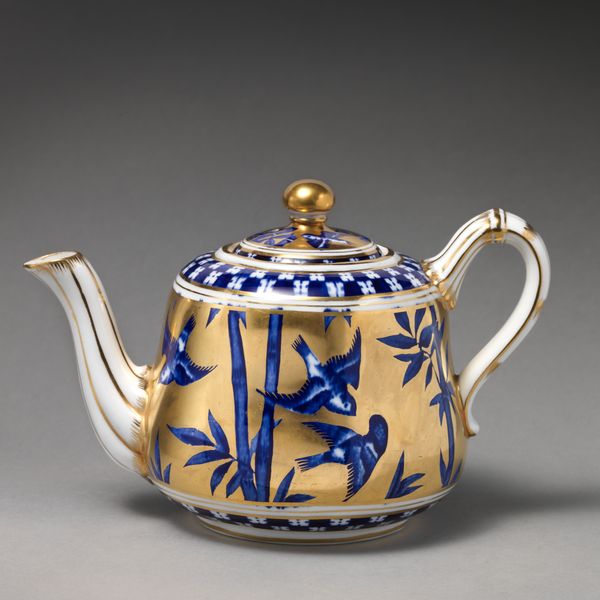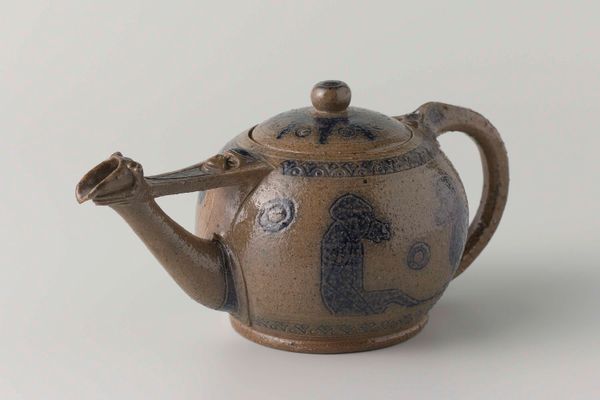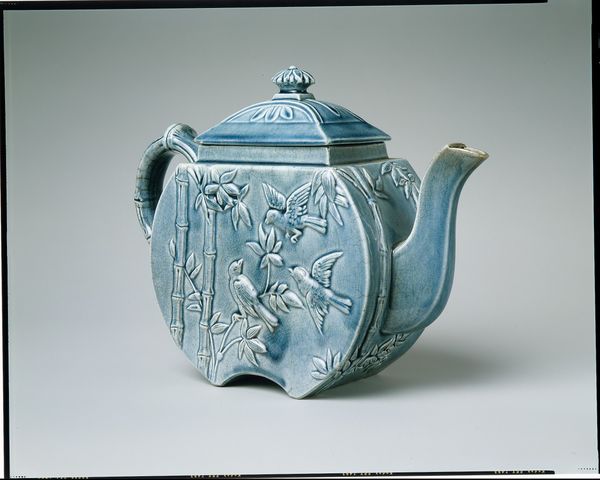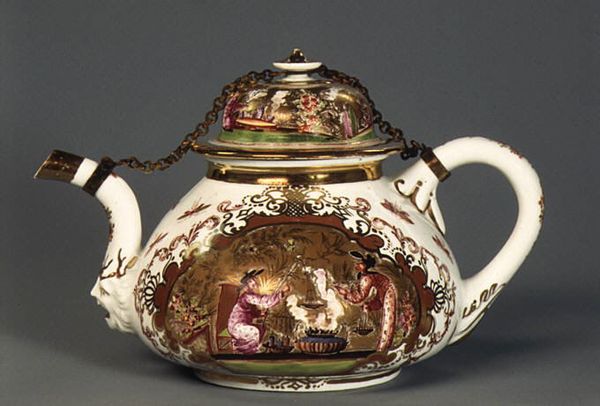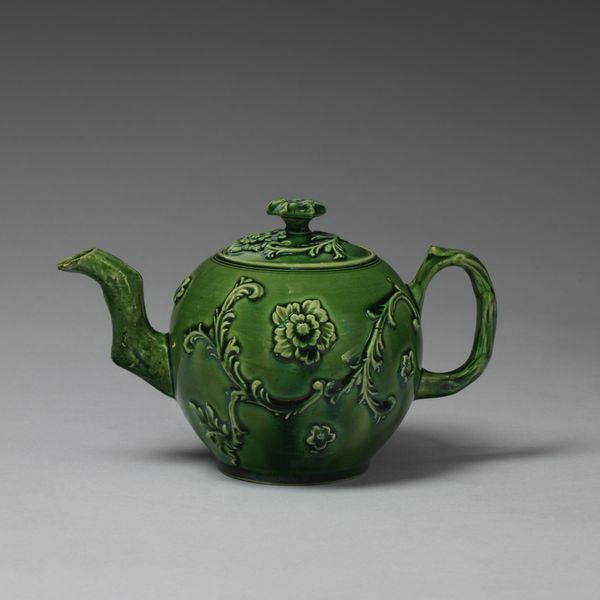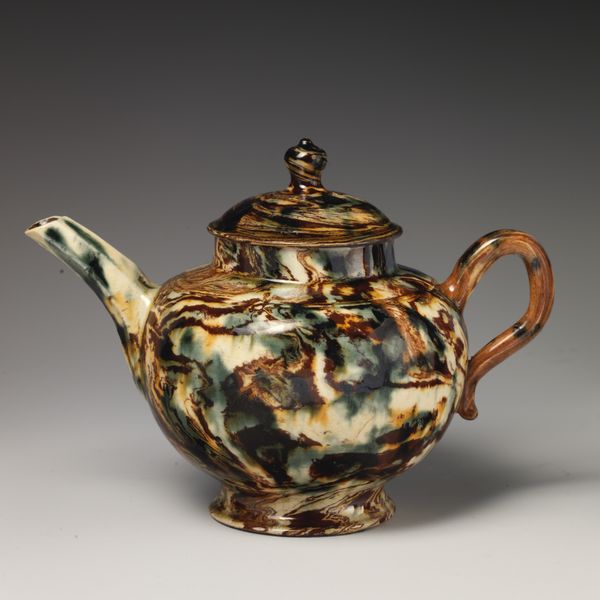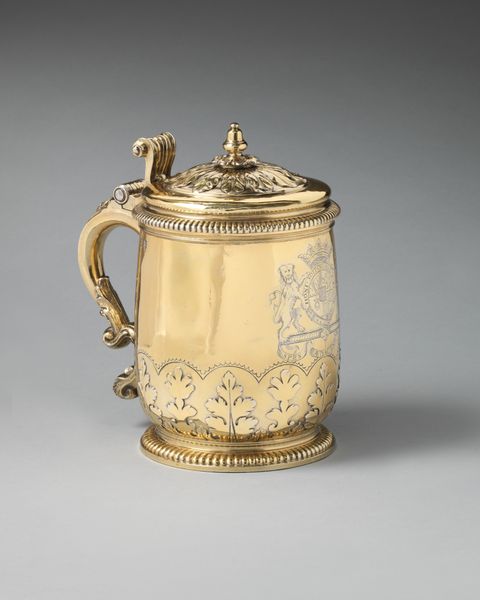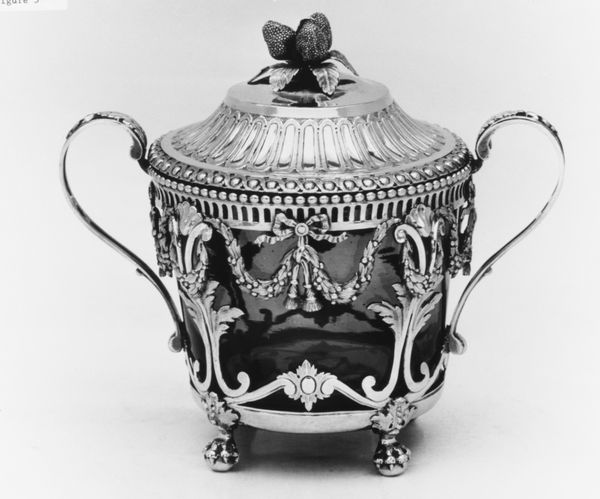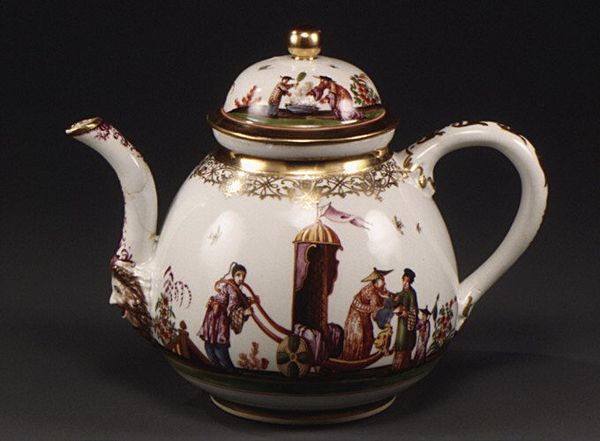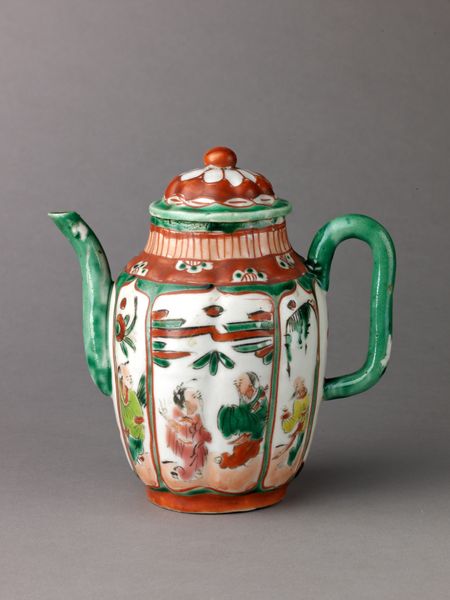
ceramic, sculpture
#
sculpture
#
ceramic
#
sculptural image
#
sculpture
#
ceramic
#
decorative-art
Dimensions: 5 3/8 x 7 5/8 x 3 5/8 in. (13.65 x 19.37 x 9.21 cm)
Copyright: Public Domain
Curator: Let’s turn our attention to this ceramic teapot, estimated to have been crafted around 1755. It currently resides in the collection of the Minneapolis Institute of Art. Editor: It’s surprisingly angular for a teapot. I find its octagonal shape, sharp edges, and decorative figures deeply charming in an understated, slightly awkward way. Curator: The “awkwardness” as you describe it is suggestive of the complicated cultural moment of production, revealing class dynamics present in elite consumption of artisanal ceramics in the 18th century. Its style aligns with decorative art. Consider the material, ceramic, combined with that decorative approach: it suggests a desire for refined yet functional objects in privileged domestic spaces. The pseudo-pastoral motifs reinforce notions of idyllic leisure enjoyed by specific groups, while masking labor conditions required for production. Editor: Focusing on the technique, I notice the glaze pooling in certain areas. This adds depth to the molded scenes, where figures and architectural elements become legible depending on how the light catches them. It almost abstracts them. Curator: That interplay between legibility and abstraction highlights the way the elite during the period distanced themselves from broader socio-economic realities. Those vague references, the scenes from a distant idealized life… who can fully interpret such a staged existence? Editor: And yet, its status as a functional object—a teapot—brings it back to earth. It exists for a specific, practical purpose, despite the surface decorations hinting at so much more. Even the choice of placing a tiny dog-like sculpture as a lid topper seems… curious and purposeful. Curator: Absolutely, because such figures also have meanings and symbolic implications, referencing fidelity and status. Who was this made for? And who had the privilege to access such an object in the long-18th century? That context remains relevant to interpreting these images on each paneled side. Editor: Despite our varying approaches, looking at the glaze, the composition, and even that funny little animal up top, my perspective is definitely richer than it was two minutes ago. Curator: Agreed. There’s always something further to see.
Comments
minneapolisinstituteofart about 2 years ago
⋮
Similar to the Wieldon plate, this teapot is made of earthenware vividly decorated with colored glazes. The pagoda, flowers, and furnishings on the faceted sides of the teapot, as well as the camel finial, were taken from Asian designs. During the 18th century, Europeans and Americans alike were fascinated by products imported from the Far East and by accounts of travel to exotic places such as China, Japan, and India. People surrounded themselves with chinoiserie prints, furniture, textiles, and ceramics influenced by Eastern designs.
Join the conversation
Join millions of artists and users on Artera today and experience the ultimate creative platform.
